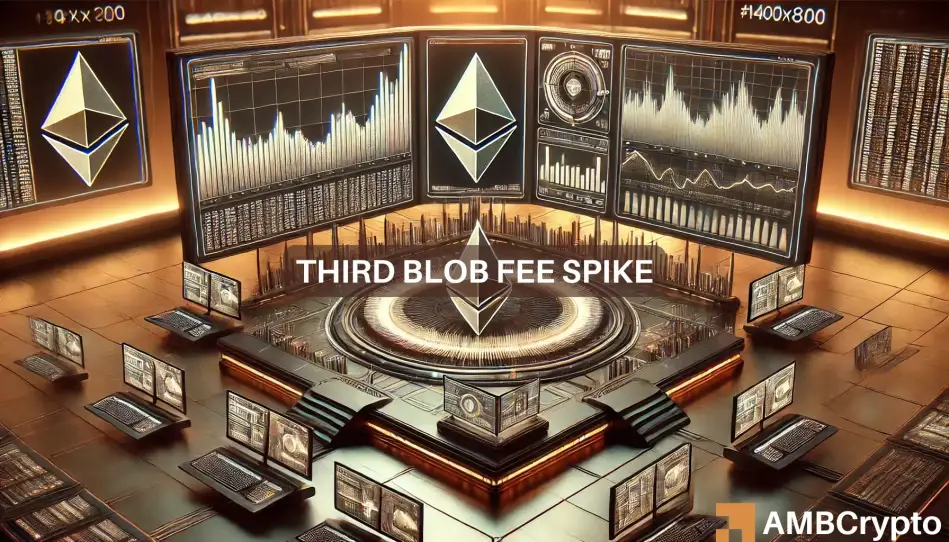- Ethereum fees recently rose to over $4.
- This was the third time since the Ethereum upgrade that fees increased.
Ethereum [ETH] costs have dropped significantly after the introduction of Blobs via the Dencun upgrade. The upgrade also reduced costs for Layer 2 (L2) networks.
However, recent activity has led to an increase in Blob fees, mainly due to the airdrop of a new L2 network token.
Ethereum L2 Blob fees are rising
Data from Dune Analytics indicates that Blob fees saw a significant spike on October 22, rising above $4. This marks the third major spike since the Dencun upgrade.
The increase was related to the airdrop for Ethereum L2 network Scroll, which distributed its governance token, SCR, to users, causing a temporary increase in activity.


Source: DuneAnalytics
Blobs were introduced with the Dencun upgrade, primarily aimed at reducing transaction fees on Ethereum’s L2 networks.
With the implementation of blobs and proto-dankharding, transaction fees on Ethereum L2s dropped significantly as more transactions were moved from the Ethereum mainnet to these secondary layers.
What this spike means for L2s
While the spike in Blob fees was caused by temporary network congestion from the airdrop, it highlighted how events like these can still cause volatility in transaction fees.
This is the third time Blob rates have increased since its introduction. However, despite these occasional spikes, Ethereum’s L2s continue to offer lower fees compared to the mainnet.
The Dencun upgrade, which focuses on lowering costs through the use of Blobs, has been largely successful in keeping Ethereum L2 costs low.
This recent spike is an exception, largely influenced by the heavy network activity surrounding the Scroll token airdrop.
How Ethereum Fees Have Evolved
Despite the temporary spike in Blob fees, Ethereum fees have generally remained low since the Dencun upgrade. Costs have fallen, especially as more transactions have migrated to L2s.
Read Ethereum’s [ETH] Price forecast 2024-25
Data from Crypto fees indicates that the average daily rate in the past week was approximately $6.7 million, while the 24-hour rate was approximately $5.4 million.
While the spike in Blob rates shows that congestion can still occur during major network events, Ethereum’s continued focus on lowering fees continues to benefit users and maintain lower transaction fees overall.

